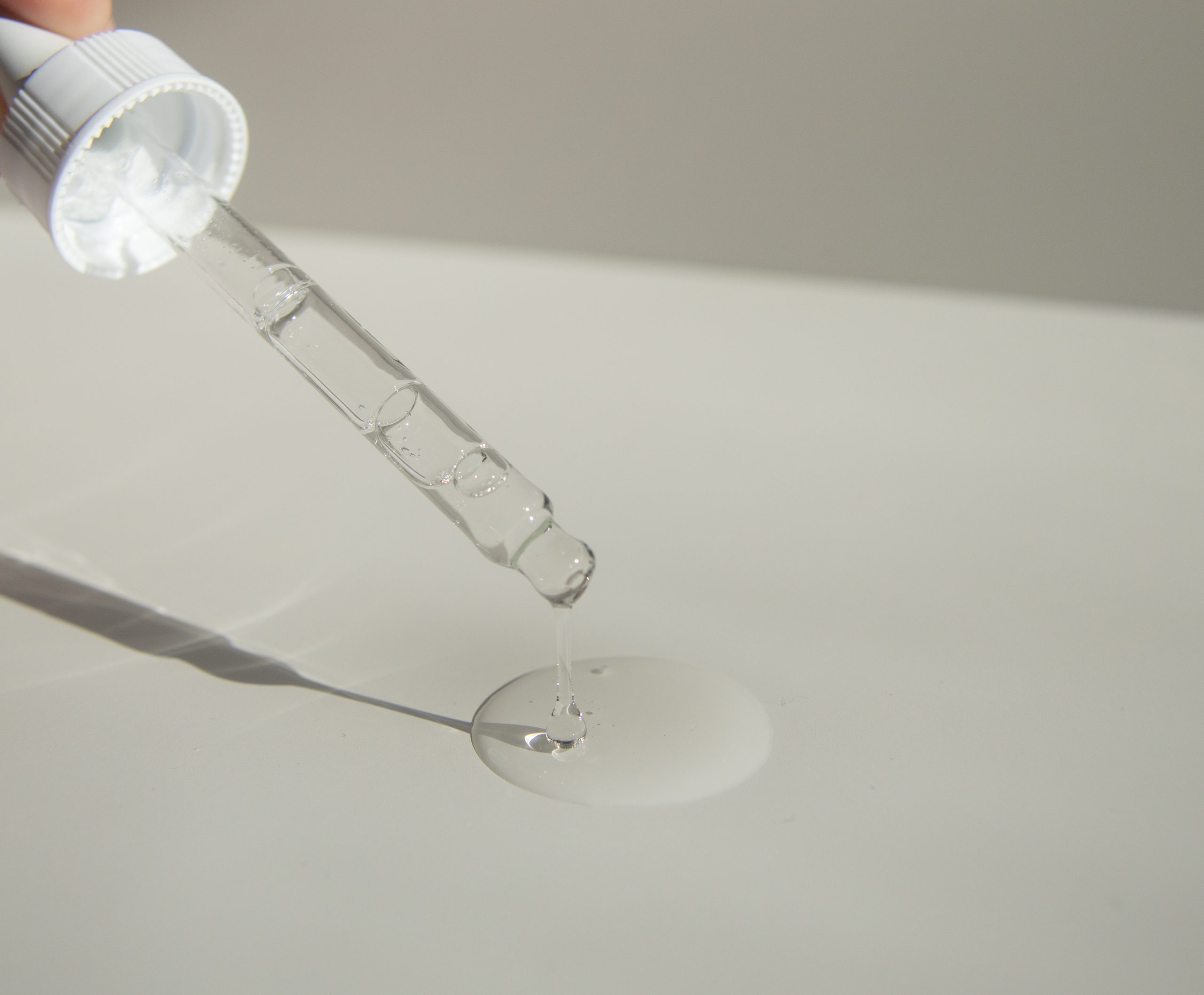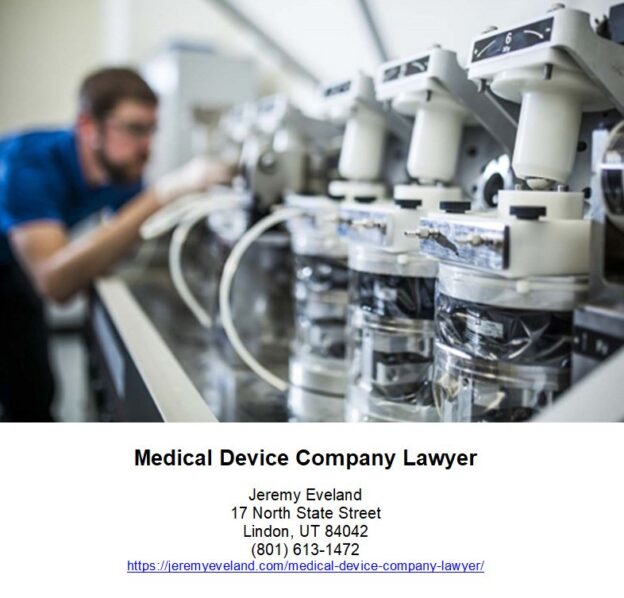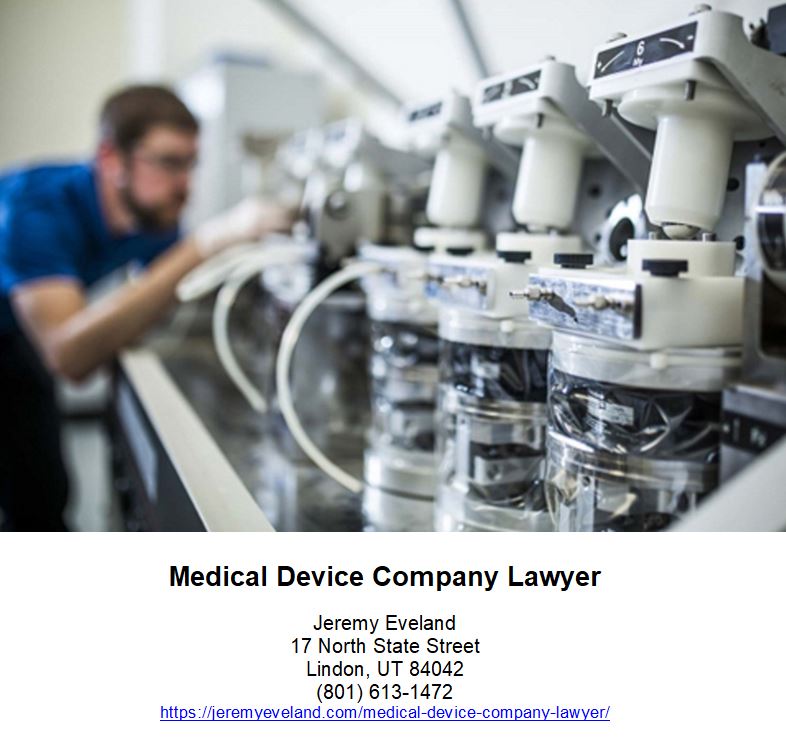Utah’s medical equipment laws and regulations are complex and ever-evolving, making it crucial for businesses in the healthcare industry to have a comprehensive understanding of these legal requirements. In this article, we will delve into the intricacies of Utah’s medical equipment laws and regulations, providing you with the necessary knowledge to ensure compliance and protect your business. By familiarizing yourself with these laws and regulations, you can avoid potential legal pitfalls and confidently navigate the healthcare landscape in Utah. Through our expert guidance, you can stay ahead of the curve and protect both your business and patients. So, let’s explore the nuanced world of medical equipment laws and regulations in Utah.
1. Definition of Medical Equipment
Medical equipment refers to any device, apparatus, or instrument used in the diagnosis, treatment, or prevention of disease or other health-related conditions. It plays a crucial role in the provision of healthcare services and includes a wide range of products, from diagnostic tools and therapeutic devices to assistive technologies and home healthcare equipment.
In Utah, the regulation of medical equipment is overseen by various state agencies to ensure the safety, quality, and effectiveness of these devices. Understanding the types of medical equipment regulated in Utah, the licensing and registration requirements, operating standards, sales and marketing regulations, insurance coverage and reimbursement, fraud and abuse prevention measures, patient rights and confidentiality, as well as the responsibilities of manufacturers and suppliers, is essential for healthcare providers, manufacturers, and suppliers operating in the state.
2. Types of Medical Equipment Regulated in Utah
2.1 Durable Medical Equipment (DME)
Durable Medical Equipment (DME) refers to medical equipment intended for repeated use, capable of withstanding prolonged use, and primarily used for medical purposes. Examples of DME include wheelchairs, hospital beds, oxygen equipment, and prosthetic devices. In Utah, DME is regulated to ensure patient safety, proper maintenance, and effective utilization through licensing and compliance with state regulations.
2.2 Prosthetic and Orthotic Devices
Prosthetic and orthotic devices are designed to support, enhance, or replace missing or impaired body parts, allowing individuals to regain mobility and functionality. Examples of prosthetic and orthotic devices include artificial limbs, braces, and corrective footwear. Utah regulates the provision and use of these devices to ensure proper fitting, quality, and patient satisfaction.
2.3 Assistive Technology Devices
Assistive technology devices are tools or equipment designed to assist individuals with disabilities in their daily activities, improving their independence and quality of life. These devices can range from simple aids like grab bars and hearing aids to more advanced technologies such as communication devices and mobility scooters. In Utah, the regulation of assistive technology devices aims to ensure accessibility, safety, and effectiveness.
2.4 Home Healthcare Equipment
Home healthcare equipment refers to medical equipment and supplies used in a home setting for the treatment and care of individuals with medical conditions or disabilities. It includes devices like nebulizers, glucose meters, and infusion pumps, as well as consumable supplies such as wound dressings and catheters. In Utah, the regulation of home healthcare equipment focuses on safety, proper usage, and infection control to protect patients receiving care at home.

3. Licensing and Registration
3.1 Obtaining a Medical Equipment License
In Utah, healthcare providers and businesses that manufacture, distribute, or sell medical equipment must obtain a medical equipment license. The licensing process involves submitting an application to the appropriate state agency, providing necessary information about the equipment being offered, and paying the required fees. The license demonstrates compliance with state regulations and ensures the provider or business meets the necessary standards to operate legally in Utah.
3.2 Registration of Medical Equipment Providers
In addition to obtaining a medical equipment license, providers are required to register with the Utah Department of Health’s Medical Equipment Provider Registry. This registry helps ensure accountability and provides a centralized system for tracking information about providers and the equipment they offer. Registration involves submitting details about the provider’s business, address, contact information, and the types of equipment being provided.
3.3 Renewal and Compliance
Medical equipment licenses and registrations in Utah must be renewed periodically to maintain compliance with state regulations. Providers should be aware of the renewal requirements, including documentation updates, payment of fees, and any additional training or qualifications needed. Failure to renew or comply with the regulations may result in penalties, fines, or even the suspension of a provider’s license or registration.
4. Operating Standards and Requirements
4.1 Quality Assurance Programs
To maintain high standards of patient care and safety, medical equipment providers in Utah are required to establish and maintain quality assurance programs. These programs focus on processes that monitor, assess, and improve the quality of the equipment and services being provided. Quality assurance programs encompass activities such as equipment maintenance and calibration, performance monitoring, and customer feedback mechanisms.
4.2 Equipment Maintenance and Repair
Ensuring the proper maintenance and repair of medical equipment is critical for both patient safety and effective treatment. Utah’s regulations mandate that providers have policies and procedures in place for routine maintenance, timely repairs, and proper record-keeping of maintenance activities. Regular equipment inspections, calibration checks, and adherence to manufacturer’s guidelines are necessary to comply with these regulations.
4.3 Handling of Prescription Orders
Utah requires medical equipment providers to follow specific guidelines when handling prescription orders. Providers must verify the validity of prescriptions, maintain accurate records of each order, and ensure compliance with patient confidentiality laws. Compliance with these regulations helps prevent errors, protects patient health information, and promotes transparency in the delivery of medical equipment.
4.4 Training and Certification for Staff
To ensure the proper use and handling of medical equipment, Utah regulations require providers to train their staff on equipment operation, safety protocols, infection control, and any applicable state or federal regulations. Staff members should receive ongoing training to stay updated on new equipment or changes in regulations. Certification programs, such as CPR certification or specialized training for specific equipment, may be necessary depending on the nature of the provider’s services.
4.5 Record-Keeping and Documentation
Accurate record-keeping and documentation are essential for compliance with Utah’s medical equipment regulations. Providers must maintain detailed records of equipment purchases, maintenance and repair activities, prescription orders, and patient information. These records are required for audits, inspections, and potential reimbursement claims. Proper documentation helps ensure accountability, traceability, and quality assurance in the provision of medical equipment and services.
5. Sales and Marketing Regulations
5.1 Advertising and Promotion
Utah regulates the advertising and promotion of medical equipment to protect consumers and promote ethical business practices. Providers must ensure that their advertising materials are truthful, accurate, and not misleading. Any claims made about the equipment’s performance, benefits, or effectiveness should be supported by scientific evidence or recognized industry standards. Misleading or deceptive advertising practices may result in penalties or legal consequences.
5.2 Pricing and Billing Practices
Pricing and billing practices for medical equipment in Utah must adhere to state and federal laws, including those related to fair billing, reimbursement, and insurance requirements. Providers should have transparent pricing structures, clearly communicate fees to patients or insurers, and accurately bill for services provided. It is essential to understand the applicable reimbursement rates, coding requirements, and insurance coverage limitations to avoid billing errors or potential fraud accusations.
5.3 Contractual Agreements with Healthcare Providers
Medical equipment providers often enter into contractual agreements with healthcare providers, such as hospitals or clinics, to supply equipment and services. These contractual agreements may include terms regarding pricing, delivery, maintenance, and compliance with applicable regulations. Providers should ensure that their contracts are legally sound, fair, and compliant with all state and federal laws. Consulting with a business lawyer experienced in medical equipment regulations can help ensure that contracts are properly drafted and protect the interests of all parties involved.
6. Insurance Coverage and Reimbursement
6.1 Understanding Insurance Policies
Insurance coverage for medical equipment varies depending on the type of insurance policy and the specific equipment being provided. Providers should familiarize themselves with the different types of insurance policies available, including private insurance, Medicare, and Medicaid. Understanding insurance coverage limitations, reimbursement rates, and documentation requirements is crucial to ensure proper billing and reimbursement for the services provided.
6.2 Medicare and Medicaid Requirements
Medical equipment providers in Utah must comply with the specific requirements set forth by Medicare and Medicaid programs when seeking reimbursement for services provided to eligible beneficiaries. Providers must meet certain criteria, follow proper billing procedures, maintain accurate documentation, and submit claims within the required time frames. Knowledge of Medicare and Medicaid rules and regulations is essential to avoid compliance issues and ensure timely reimbursements.
6.3 Private Insurance Guidelines
In addition to government programs like Medicare and Medicaid, medical equipment providers may also work with private insurance companies. Each private insurer may have its own guidelines, coverage policies, and reimbursement rates. Providers should be familiar with these guidelines and understand the documentation and billing requirements specific to each insurance company. Compliance with private insurance guidelines helps ensure timely and appropriate reimbursement for services rendered.

7. Fraud and Abuse Prevention
7.1 Anti-Kickback Laws
Utah, like many other states, has stringent anti-kickback laws in place to prevent kickbacks, bribes, or other forms of illegal inducements that could influence referrals or purchases of medical equipment. Providers must be aware of these laws and ensure that their business practices comply with the regulations. Violations can result in severe legal and financial consequences, including civil and criminal penalties.
7.2 Stark Law Compliance
The federal Stark Law prohibits self-referrals or financial relationships that could create conflicts of interest in the provision of healthcare services, including the referral or purchase of medical equipment. Providers should understand and comply with the Stark Law to avoid potential violations. It is crucial to consult with legal professionals knowledgeable in both Utah state laws and federal healthcare regulations to ensure compliance with all applicable laws and regulations.
7.3 Reporting Suspected Fraud
Utah encourages individuals or entities to report suspected fraud, abuse, or violations of medical equipment laws and regulations. It is crucial for providers or other healthcare professionals to be vigilant in identifying potentially fraudulent activities and promptly reporting them to the appropriate authorities. Reporting suspected fraud not only helps protect patient safety and welfare but also supports efforts to maintain integrity within the healthcare system.
8. Patient Rights and Confidentiality
8.1 Consent and Privacy Laws
Utah upholds the rights of patients to make informed decisions about their medical care, including the use of medical equipment. Providers must obtain appropriate consent from patients before providing equipment or services, ensuring that patients understand the purpose, risks, and benefits of the equipment being offered. Patient privacy is also protected by state and federal laws, and providers must adhere to these laws to safeguard patient information and maintain confidentiality.
8.2 Handling of Patient Information
Medical equipment providers in Utah must handle patient information in accordance with state and federal laws, such as the Health Insurance Portability and Accountability Act (HIPAA). Providers must maintain strict confidentiality, implement safeguards to protect patient information from unauthorized access or disclosure, and comply with regulations regarding data security and privacy. Failure to protect patient information can result in legal and financial consequences.
8.3 Complaints and Grievances
Utah provides mechanisms for patients to voice complaints or file grievances if they believe their rights have been violated or if they have concerns about the medical equipment or services provided. Providers must have protocols in place to handle and address patient complaints promptly and appropriately. Taking complaints seriously, investigating them thoroughly, and implementing measures to prevent similar issues in the future is crucial for maintaining patient satisfaction and trust.

9. Manufacturer and Supplier Responsibilities
9.1 Product Safety and Labeling
Manufacturers and suppliers of medical equipment in Utah are responsible for ensuring the safety, effectiveness, and proper labeling of their products. They must adhere to federal regulations and industry standards for product testing, quality control, and risk management. Clear and accurate labeling of medical equipment is essential to inform users about the equipment’s purpose, instructions for use, warnings, and precautions.
9.2 Reporting Adverse Events
Manufacturers and suppliers are required to promptly report any adverse events or incidents related to their medical equipment to the appropriate regulatory agencies. Reporting adverse events helps identify potential safety issues, mitigate risks, and improve patient safety. Failure to report adverse events can result in legal consequences and damage to the manufacturer or supplier’s reputation.
9.3 Recalls and Corrective Actions
In the event of a defect or safety concern with medical equipment, manufacturers and suppliers must take appropriate actions, such as recalls or corrective measures, to address the issue and protect users. Timely communication and cooperation with regulatory agencies, healthcare providers, and patients are vital during recall or corrective action processes. Failure to respond appropriately to safety concerns can lead to legal liabilities and reputational damage.
9.4 Supply Chain Management
Managing the supply chain is crucial for maintaining the integrity and quality of medical equipment. Manufacturers and suppliers must have processes in place to ensure the authenticity, traceability, and proper handling of equipment throughout the supply chain. Compliance with regulations related to sourcing, storage, transportation, and distribution of medical equipment helps prevent counterfeit, substandard, or adulterated products from reaching patients.
10. Enforcement and Penalties
10.1 Inspections and Audits
Utah regulatory agencies conduct inspections and audits to ensure compliance with medical equipment laws and regulations. Providers, manufacturers, and suppliers may be subject to unannounced inspections, during which documents, records, and equipment may be reviewed. Inspections help identify non-compliance issues, verify adherence to operating standards, and ensure patient safety. Failure to cooperate with inspections or address any deficiencies found can result in penalties or regulatory action.
10.2 Civil and Criminal Penalties
Non-compliance with Utah’s medical equipment laws and regulations can lead to civil and criminal penalties. Civil penalties may include fines, suspension or revocation of licenses or registrations, and mandatory corrective actions. Criminal penalties, depending on the severity of the violation, may include fines, imprisonment, or both. To avoid legal consequences, it is essential for providers, manufacturers, and suppliers to maintain strict compliance with all applicable laws and regulations.
By understanding and adhering to Utah’s medical equipment laws and regulations, healthcare providers, manufacturers, and suppliers can ensure the safety, quality, and effectiveness of medical equipment, protect patient rights and confidentiality, and maintain a high standard of compliance within the healthcare industry. Consulting with a business lawyer experienced in medical equipment regulations can provide valuable guidance and legal support in navigating the complexities of Utah’s regulatory framework.
FAQ
1. Do all medical equipment providers in Utah require a license?
Yes, all medical equipment providers in Utah, including manufacturers, distributors, and sellers, must obtain a license to legally operate in the state. The licensing process involves submitting an application, providing necessary information, and paying the required fees.
2. What are the consequences of non-compliance with Utah’s medical equipment regulations?
Non-compliance with Utah’s medical equipment laws and regulations can result in penalties and legal consequences. These may include fines, suspension or revocation of licenses or registrations, mandatory corrective actions, and, in severe cases, criminal charges.
3. How can medical equipment providers ensure compliance with pricing and billing practices?
To ensure compliance with pricing and billing practices, medical equipment providers in Utah should have transparent pricing structures, clearly communicate fees to patients or insurers, and accurately bill for services provided. It is crucial to understand insurance coverage limitations, reimbursement rates, and documentation requirements.
4. What steps should manufacturers and suppliers take to ensure product safety?
Manufacturers and suppliers of medical equipment in Utah should adhere to federal regulations and industry standards for product testing, quality control, and risk management. They should also ensure proper labeling and promptly report any adverse events or incidents related to their products.
5. How can I report suspected fraud or violations of medical equipment laws in Utah?
Utah encourages individuals or entities to report suspected fraud, abuse, or violations of medical equipment laws and regulations. Reports can be made to the appropriate regulatory agencies or law enforcement authorities.







